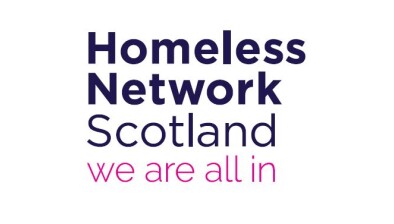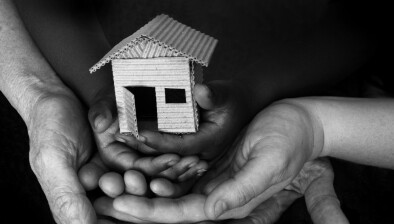Col. Sylvia Hinton: Breaking the cycle of homelessness
Col. Sylvia Hinton
Col. Sylvia Hinton, secretary for Scotland with The Salvation Army, provides insight into the charity’s new report that champions access to addiction and mental health support to prevent repeat homelessness.
It is said that when our founder William Booth saw men sleeping under the bridges of London during the cold winter of 1888, he immediately issued the simple order, ‘Go and do something!’ That resulted in the opening of the Army’s first shelter for people who had nowhere else to go at a time without state welfare or access to free healthcare and few options for people who found themselves destitute.
The Salvation Army has been taking practical steps to address homelessness in Scotland for 145 years since the first church was established at Anderston Cross, Glasgow.
Thankfully, we are closer than ever to eradicating one of the most despicable and preventable tragedies that can befall an individual or family in a developed country such as ours. There is more research available and legislation in place than at any time in the 145 years of our mission in Scotland. So, why does it persist?
What we now know makes it very clear that to successfully address homelessness in Scotland and begin reducing it permanently requires a holistic view of support. This is why our new report, titled Breaking The Cycle, published this week places access to addiction and mental health support firmly alongside homelessness services.
In recent years, a rise in the number of people experiencing homelessness with support needs for both addiction and mental health sits against a wider backdrop in Scotland of persistently high levels of drug and alcohol-specific deaths, along with equally worrying levels of mental ill health and decreasing confidence in being able to access treatment for these conditions.
Those we spoke to for Breaking The Cycle told us that barriers preventing people accessing the essential wrap-around support they need include a postcode lottery of services, lack of out-of-hours assistance, being trapped in temporary accommodation or locked out of support due to dual diagnosis - and of course the ever-present stigma that still exists.
Some of the strongest legislation in Europe, brave individuals with lived experience offering their expertise and a committed, passionate third sector has positioned Scotland at the forefront of innovative policy, gaining respect and admiration. There has been positive progress such as the success of Housing First over recent years, prison to rehab protocol and one-stop-hubs. However, as set out in more detail in our report, unless multiple issues are addressed together and the right data is collected it will be impossible to achieve what we all want to see – homelessness falling.
It is up to all of us who care passionately about the tragedy of homelessness to implement and evaluate good legislation and improve on it while putting knowledge into practice - we know what causes it and how to prevent it. It is my privilege to present this report in the hope that its findings and recommendations will add to the resources already available to help achieve our collective ambition.
I ask for your support in drawing attention to the issues raised in #BreakingTheCycle even if it is simply sharing on social media. Whether your work is through lived experience, the housing sector, support for substance use, mental health or local and national government - whatever it is you do, do something.








